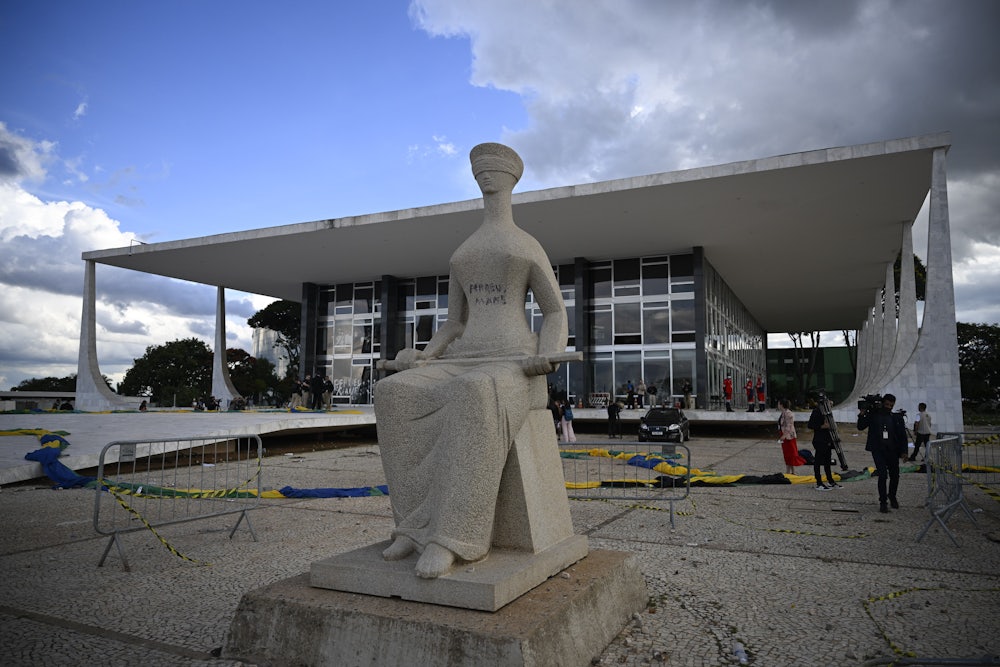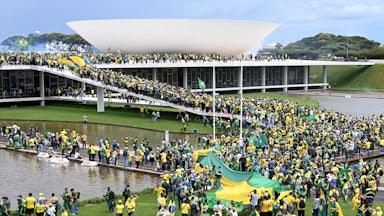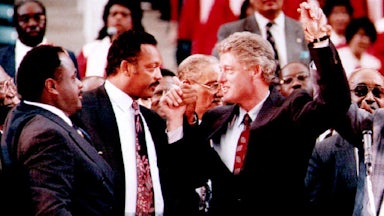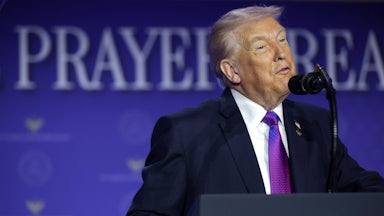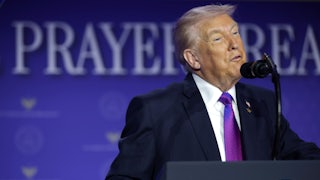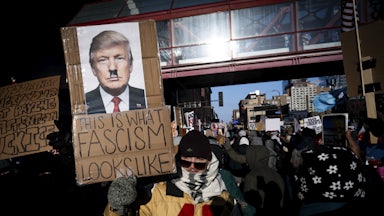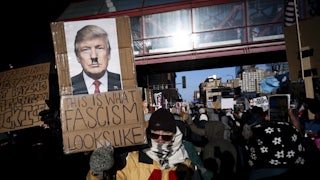The Brazilian government wasted no time in responding to the insurrection that shook the capital city on January 8. Hundreds of arrests were made right away, and authorities mounted a robust investigation that quickly identified many of the individuals and groups who paid for the pro-Bolsonaro rioters to get to Brasília. Naturally, such a robust defense of democracy has its detractors: Some on the right have complained that the government is overplaying its hand by arresting people who were at the scene of the crime but who are really decent people in their heart of hearts.
Such allegations are too self-serving to take seriously. The element of the government’s response that has probably sparked the most indignation, however, has to do with social media. It all started when Supreme Court Minister Alexandre de Moraes issued an order around midnight after the insurrection, ordering Facebook, Twitter, TikTok, and Instagram to block accounts inciting or supporting attacks on Brazil’s democratic order. A fine of 100,000 Brazilian reais (just under $20,000, more or less) would be applied to companies that failed to act within two hours of receiving notice from the court.*
Some saw this as a grave civil rights violation. Journalist Glenn Greenwald, who lives in Brazil and can fairly be described as a “free speech absolutist,” was particularly vocal in denouncing the moves of de Moraes. “I can’t overstate how shocking and dangerous this new censorship order is,” Greenwald tweeted on January 13. “It’s from the same judge that even the NYT has been warning about as authoritarian.” Greenwald repeatedly referenced a New York Times piece by Jack Nicas and André Spigariol, which noted “a raw display of judicial force” by de Moraes “that crowned a trend years in the making: Brazil’s Supreme Court has drastically expanded its power to counter the antidemocratic stances of Mr. Bolsonaro and his supporters.”
De Moraes is indeed immensely powerful, handing down decisions with a solitary force that puzzles most American observers. Criticizing the willingness of many Brazilians to applaud de Moraes in the aftermath of January 8, Greenwald tweeted, “I’ve never seen a judge in any democracy with this level of power. He’s become a venerated hero of the Brazilian left, feared and off-limits from criticism.” Greenwald’s alarmism attracted the attention of Twitter’s Grand Poobah himself. “This is extremely concerning,” Elon Musk tweeted in response to Greenwald. “Is it just one judge?” he later inquired.
One can understand why Musk, whose grip on what constitutes both the public square as well as free speech is so famously loosey-goosey, would perceive a temporary ban from Twitter as an excruciating sentence. It is not clear why anyone else should. When allegations of state censorship are bandied about, it is worth establishing a sense of proportion and stakes to which our perspective might be anchored. Here’s one: In 1975, Vladimir Herzog, a journalist born in the former Yugoslavia whose family emigrated to Brazil when he was 9, was called in for questioning by agents of the political police. The prominent editor at TV Cultura was suspected of having ties to the Brazilian Communist Party. On October 25, Herzog dutifully showed up at the police station. He was never seen alive again.
When most Brazilians think of censorship, they think of the dictatorship, of government censors in newsrooms telling editors what stories they can and cannot run. They might even think of the well-known Herzog case, an emblematic example of a real “censorship regime”—to use Greenwald’s dramatic terminology—run amok. Greenwald is obviously aware of Herzog. In 2019, he won a journalism award named after the slain journalist for his consequential work at The Intercept Brazil.
The implication that Brazil is living under a kind of juridical dictatorship today is dangerous. It suggests that the government is observing no limits in responding to the grave assault of January 8, a notion likely to inflame former President Jair Bolsonaro’s most ardent supporters, who are already inclined to see the Lula administration as illegitimate and therefore rightfully resisted. To be clear: There is no substantive reason whatsoever to fear that Brazilian authorities are denying its citizens due process.
Being banned from social media for a time might be inconvenient, and it might suck for prominent users, but it is not tyranny. It is worth remembering that there are, in fact, avenues of free expression that do not need to run through the likes of Elon Musk, which not only existed before the advent of Twitter but shall prove to be substantially more enduring than the past-its-prime social media firm. A handful of people being barred from social media does not a police state make.
Most important to stress in this heated climate is the fact that not a single action taken by any government official in Brazil after January 8 comes anywhere close to replicating the institutional and physical violence against dissent perpetrated by the state during the period of military rule. There can, of course, be legitimate concerns about the justice system overstepping its authority. Worrying about judicial overreach does not automatically place one on the side of the insurrectionists. But such concerns are so far unjustified. This isn’t a slippery slope scenario. There is no symmetry between the radical right and everyone else. There’s no need for “well, now a right-wing president will be justified in cracking down on the left” hypotheticals because there’s no similar threat from anti-Bolsonaro grassroots forces on the horizon. The New York Times piece Greenwald has been citing incessantly in defense of his alarmism about de Moraes was notably written in September. Obviously, quite a bit has transpired since then.
If what is happening in Brazil is not a legitimate crisis that justifies a social media timeout for some people—namely, accounts that lionize rioters or mobilize future attacks on Brazil’s democratic order—it’s not clear what in the world is. There are simply no accounts of authorities acting unreasonably. The two men most directly responsible for the security failings in Brasília on January 8—the governor and security secretary of the Federal District—are being scrupulously afforded every due process protection. There are no kangaroo courts and no state of exception despite an emergency federal intervention in Brasília. In a sense, the freakout over social media access illustrates the exemplary way in which the Lula administration is handling the response in the real world. If this is the biggest complaint, then there is little else to criticize.
To anyone scrupulously devoted to the bigger picture, there are more substantive concerns to which our attention is more deservedly diverted. Free speech absolutism is a clear, legitimate principle. But so is the notion that people should not be allowed to use privately held social media platforms to incite an insurrection against a democratically elected government. It is clear that the Brazilian government was woefully unprepared for an attack like the one on January 8. It is now scrambling to tackle a threat it should have done more to combat sooner. There is much in the way of shoring up democratic institutions to be done.
In the meanwhile, we should observe the fact that nobody is being arrested or beaten by state security forces for posting, and there is no substantive reason to believe the state is overreacting. We can debate whether and when censorship is appropriate in a given context, but surely everyone can agree that context matters. Thinking Alexandre de Moraes was right to act the way he did after January 8 does not mean one is compelled to agree that any judge, anywhere, can block anyone’s account for any reason whatsoever.
The right to say anything on privately owned social media platforms has never been absolute; not even Musk believes that everyone has the carte blanche right to tweet. If you’re eager to post apologetics for an attempted coup against a democratically elected government, you’ve lost the moral high ground. Tweets have consequences, particularly in the wake of a violent insurrection—and not just where Twitter’s Terms of Service are concerned. Sounding the alarm about people not being allowed to tweet as if it is an egregious human rights abuse will ultimately feed conspiracy theories that Lula is using what happened on Sunday to round up opponents. Such narratives play into the hands of extremists who want to extinguish democracy in Brazil. Ensuring their ability to post freely online should not be the priority of any small-d democrat right now.
* This article originally misidentified the name of the currency.
